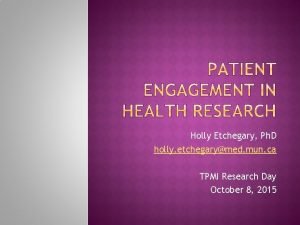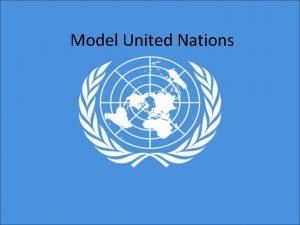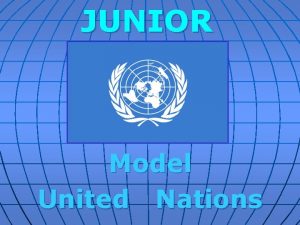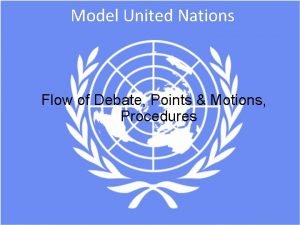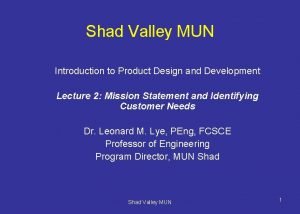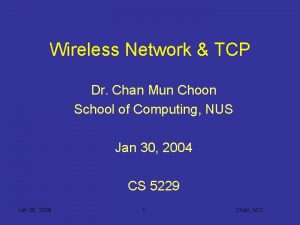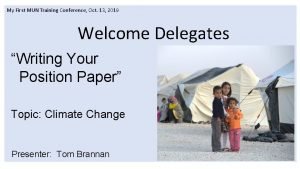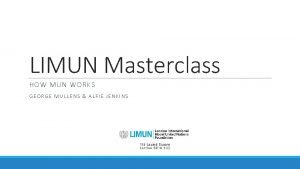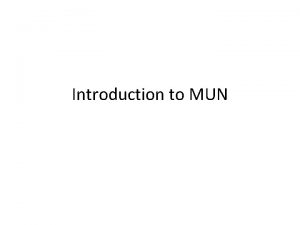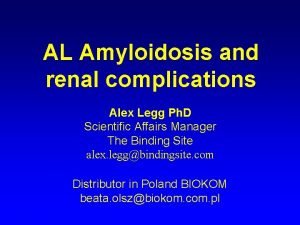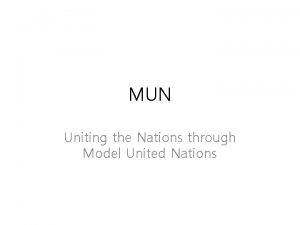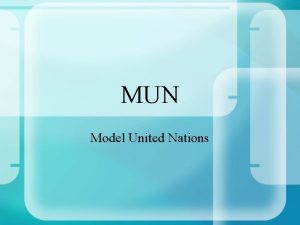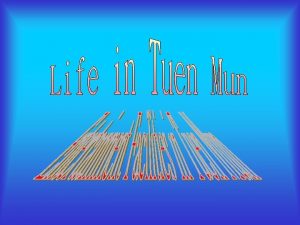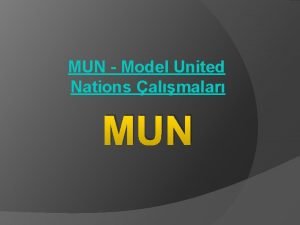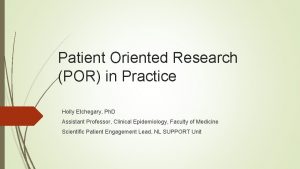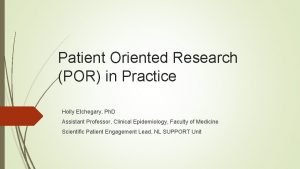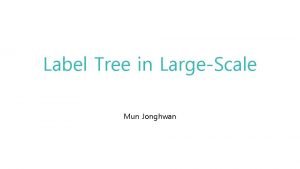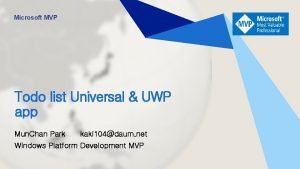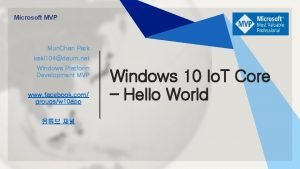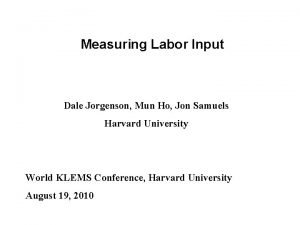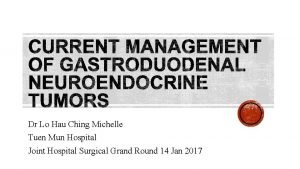Holly Etchegary Ph D holly etchegarymed mun ca




















- Slides: 20

Holly Etchegary, Ph. D holly. etchegary@med. mun. ca TPMI Research Day October 8, 2015

� CIHR – the Canadian Institutes of Health Research is a main funder of health research in Canada �A key goal of CIHR’s Strategy for Patient. Oriented Research (SPOR) is for patients, healthcare providers, researchers and decision-makers to actively work together to build a healthcare system that promotes positive health outcomes for all Canadians.

� By involving patients in health research, it is hoped to conduct research that: �Supports the provision of appropriate healthcare services �Improves patients’ experience �Improves health outcomes �Reduces healthcare costs

� CIHR defines a patient as: �individuals with personal experience of a health issue �also informal caregivers, including family and friends In our research projects, we recognize that not all community members who take part will be patients

� CIHR defines patient-oriented research as: �research that engages patients as partners focuses on patient-identified priorities and improves patient outcomes This research, by multidisciplinary teams in partnership with relevant stakeholders, aims to apply the knowledge generated to improve healthcare systems and practices.

� We have a patient engagement strategy for Newfoundland Labrador � It includes many different activities that promote public engagement in research �citizen representatives on decision-making committees �presentations to promote the idea �talking with partners to share ideas �talking with the community

� Opportunity to talk with members of the community � Two held to date, St. John’s and Ferryland � Others are planned (e. g. , Mall Walker’s Club), but today is also an opportunity � Information we collect informs our planning and priority-setting practices

� Today, we will show you the most common responses from the public to date and ask for your thoughts as well � However, you do not have to take part if you do not wish to and you are free to leave at any time of course. No names or other identifying information will be collected. � If you do want to take part, we will use clickers, but we also have a handout

� These are the questions we use in our public town halls…. .

� We are interested in what patient or public engagement means to you. Please tell us any ideas that come to mind to this question: �How do you think the public or patients could be involved in local health research? �What could we as researchers do? �What could you as members of the public do?

� We are interested in what kind of health research projects are of interest to you. In our research, we are looking for things that would make a difference in your health or healthcare. Please tell us: � If you could think about a worry or concern about healthcare in this province that needs to be our top priority, what would that be? �Disease prevention? Healthy aging? Access to health services? Mental health? Something else?

�We want to know what you would like to see happen as a result of health research. Please tell us: �As a patient, what are the outcomes you might want to see as a result of health research? �(For example, better quality of life for patients, reduced wait times, better access to doctors, something else? )

�Finally, we are interested in what we can do to engage the public and how we can best inform you of what’s happening. Please tell us: �What do you think is needed in order to engage the public in health research? �How can we keep you informed?

� Responses have been converted to closeended items � Responses are the most common from participants in our town halls – BUT, responses were very variable � Are your responses similar?

1. 2. 3. 4. Social media channels, e. g. , facebook, twitter, blogs Local radio shows, specifically phone in Local print advertising (e. g. , posters/bulletin boards) Work with disease advocacy groups/organizations

1. 2. 3. 4. Disease prevention/health promotion starting at a young age Access to healthcare, whether in rural areas of province or to specialty services (e. g. , psychological support for teens, addiction services) Better coordination and continuity of care Fostering behavioral change in patients (e. g. , responsibility for decisions that affect health)

1. 2. 3. 4. Better access to services (family doctors, specialists, etc. ) Continuity of care Better use of limited healthcare resources (e. g. , avoiding trips to ER, seeing another healthcare professional when appropriate instead of family doctor) Traveling unit to deliver services, particularly to rural NL (e. g. , eye exams, screening tests)

1. 2. 3. 4. Engage municipalities or societies – students, disease groups, etc. Social media channels Radio/TV ads Traveling road shows

1. 2. 3. 4. Extra time and money needed to train patients about research Researcher resistance to including patients on the research team, whether due to lack of evidence or lack of institutional support Patients lack of knowledge or lack of interest in health research generally Patients do not believe that researchers think the patient view matters

� Please leave any other thoughts/suggestions in the survey booklet � Town halls a team effort: �Catherine Street �Dale Humphries �Brendan Barrett �Kris Aubrey-Bassler �Lisa Bishop �Andrea Pike �Shannon Fisher
 Holly etchegary
Holly etchegary Tuen mun mental health centre
Tuen mun mental health centre What is mun
What is mun Anatolia college mun
Anatolia college mun Model un motions
Model un motions Shad mun
Shad mun Moranbong university
Moranbong university Mun choon chan
Mun choon chan Mun position paper
Mun position paper How mun works
How mun works Introduction to mun
Introduction to mun Mun position paper outline
Mun position paper outline Andy fisher mun
Andy fisher mun Ife pe and flc serum
Ife pe and flc serum Seng mun kong
Seng mun kong Preambs
Preambs Mun 101
Mun 101 Mun phrases
Mun phrases Point of entertainment mun
Point of entertainment mun Chan ho mun
Chan ho mun Mun ugm
Mun ugm
